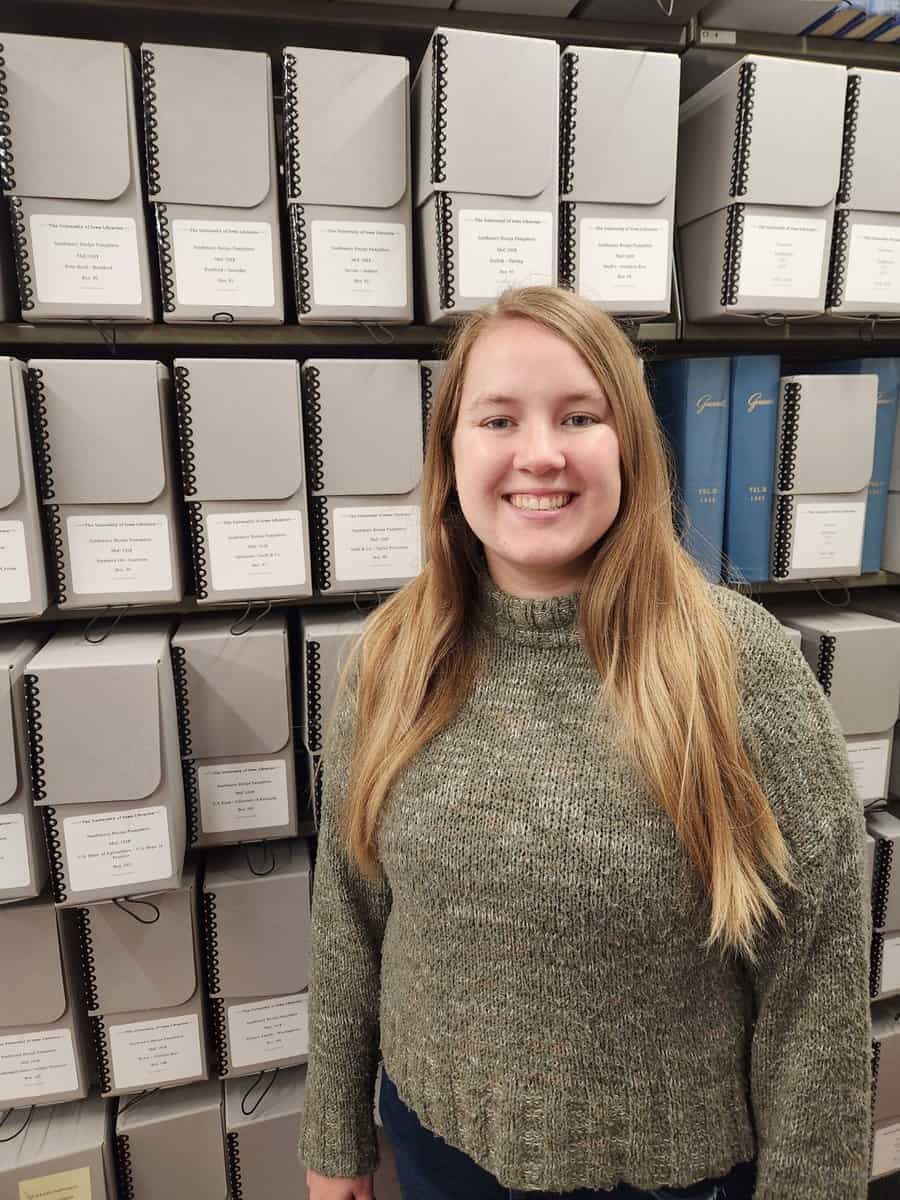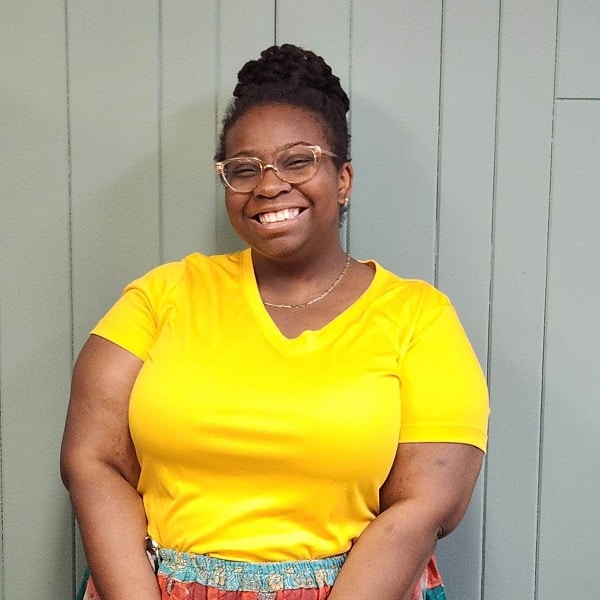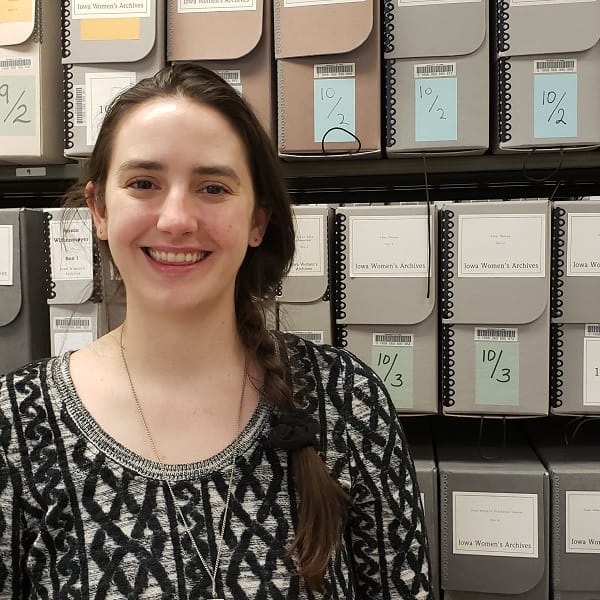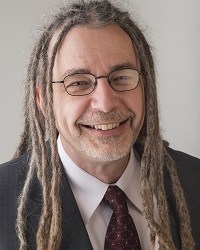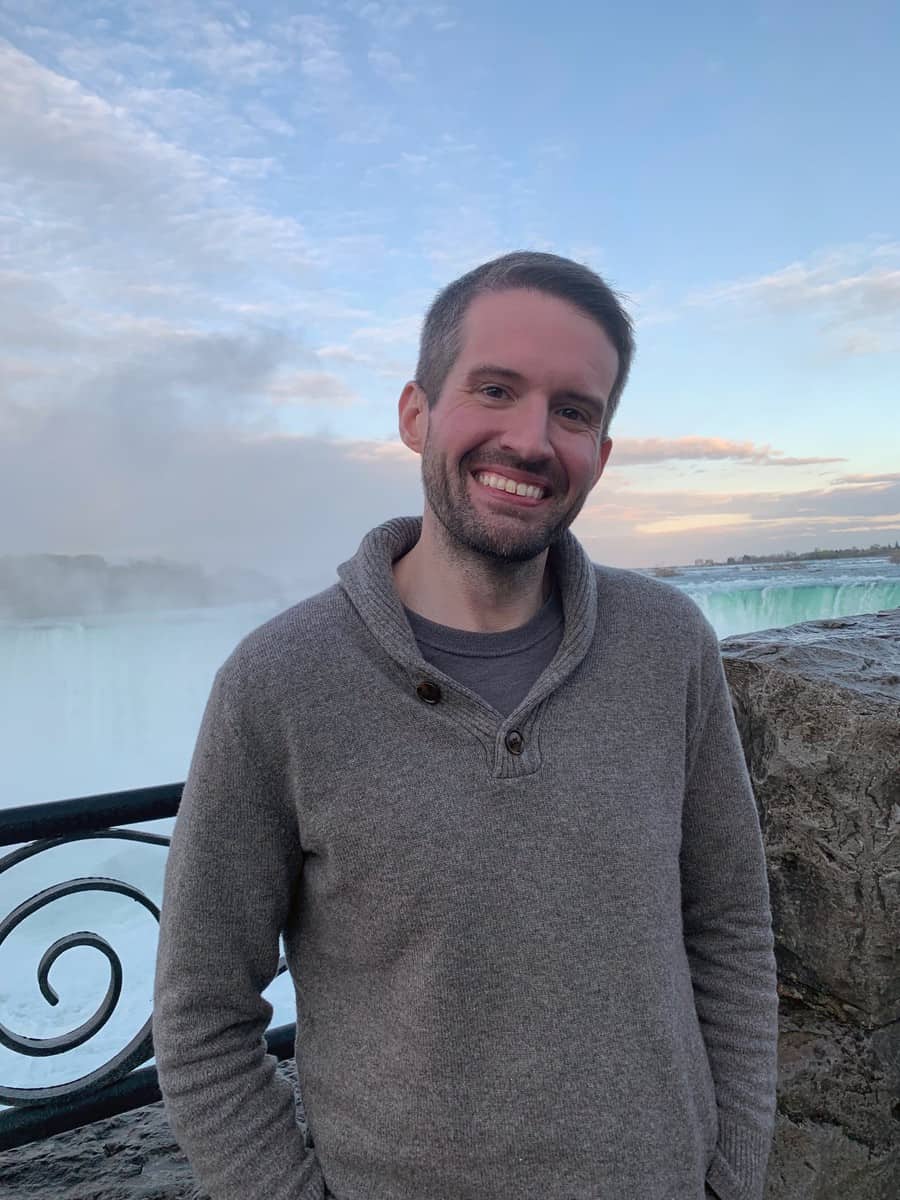We are excited to welcome Rachel Romero as our new collections archivist in Special Collections and Archives. Originally from Chicago, Rachel received her MLIS with a special collections certificate in May 2024 and her BA in English from the University of Iowa. Previously, Rachel was a graduate processing assistant in Special Collections and Archives, whereContinue reading “Welcome Rachel Romero”
Category Archives: Staff News
Welcome Rachel Poppen, new collections archivist
We are pleased to welcome Rachel Poppen as our new collections archivist in Special Collections and Archives. Rachel joined the department in mid-July. Raised in Sibley, Iowa, Rachel received her Bachelor of Arts in English and Spanish from the University of Iowa. She then went on to receive her Master of Science in Information ScienceContinue reading “Welcome Rachel Poppen, new collections archivist”
Welcome Matrice Young, new student life archivist
We are happy to welcome Matrice Young as our new student life archivist in Special Collections and Archives. Matrice joined the Libraries at the beginning of summer. Hailing from Chicago, Matrice received her BA in creative writing with minors in educational studies and Africana. She received her MA in Library and Information Science from UniversityContinue reading “Welcome Matrice Young, new student life archivist”
Welcome Kate Orazem
We are happy to welcome Kate Orazem as the inaugural Iowa Women’s Archives Women in Politics Archivist. Orazem joined the team at the beginning of October. She received a Master of Library and Information Science (MLIS) and Master of Arts in women’s and gender studies from the University of Texas at Austin and a BachelorContinue reading “Welcome Kate Orazem”
Welcome Rich Dana
We are pleased to announce Rich Dana as Special Collections and Archives’ Sackner Archive Project coordinator librarian. Rich Dana earned his MFA from the University of Iowa Center for the Book in 2021 and his MA from the School of Library and Information Science in 2020. He has worked as an art mover, art fabricator andContinue reading “Welcome Rich Dana”
Welcome Sarah Keen, our new university archivist
We are pleased to welcome Sarah Keen as our new university archivist in Special Collections & Archives. Sarah joined the Libraries at the start of the fall semester. She comes to Iowa from upstate New York, where she served as Colgate University Libraries’ university archivist and head of Special Collections and University Archives. Previously, sheContinue reading “Welcome Sarah Keen, our new university archivist”
University Archivist David McCartney is ready for the next chapter
He’s served as the University of Iowa’s institutional memory for the last 21 years, which includes writing the beloved Old Gold series. Now, University Archivist David McCartney is starting a new chapter. McCartney, who is retiring on March 1, has been dedicated to ensuring access to Iowa’s history and also highlighting voices that are underrepresentedContinue reading “University Archivist David McCartney is ready for the next chapter”
Introducing Kathryn Reuter, Academic Outreach Coordinator
Special Collections & Archives is excited to welcome Kathryn Reuter to the team as our new Academic Outreach Coordinator. As Academic Outreach Coordinator, Kathryn will be working with both the UI Libraries and Stanley Museum of Art to increase visibility and usability of our deep and culturally diverse collections of art and visual materials. KathrynContinue reading “Introducing Kathryn Reuter, Academic Outreach Coordinator”
Aiden Bettine to join Special Collections and University Archives
The University of Iowa Libraries is pleased to announce that Aiden M. Bettine will join the Department of Special Collections and University Archives as Community and Student Life Archivist effective January 4, 2021, a newly-created position in the Libraries’ Residency Librarian Program*. Bettine established the Transgender Oral History Project of Iowa in 2018 and isContinue reading “Aiden Bettine to join Special Collections and University Archives”
Dr. Eric Ensley joins Special Collections
On December 28th, 2020, Dr. Eric Ensley will join Special Collections as Curator of Books and Maps. Ensley earned his MSLS from UNC before going on to earn an MA in English from NCSU, then an MA, M.Phil., and PhD in English from Yale. While at Yale, he worked in the Beinecke Library as aContinue reading “Dr. Eric Ensley joins Special Collections”

